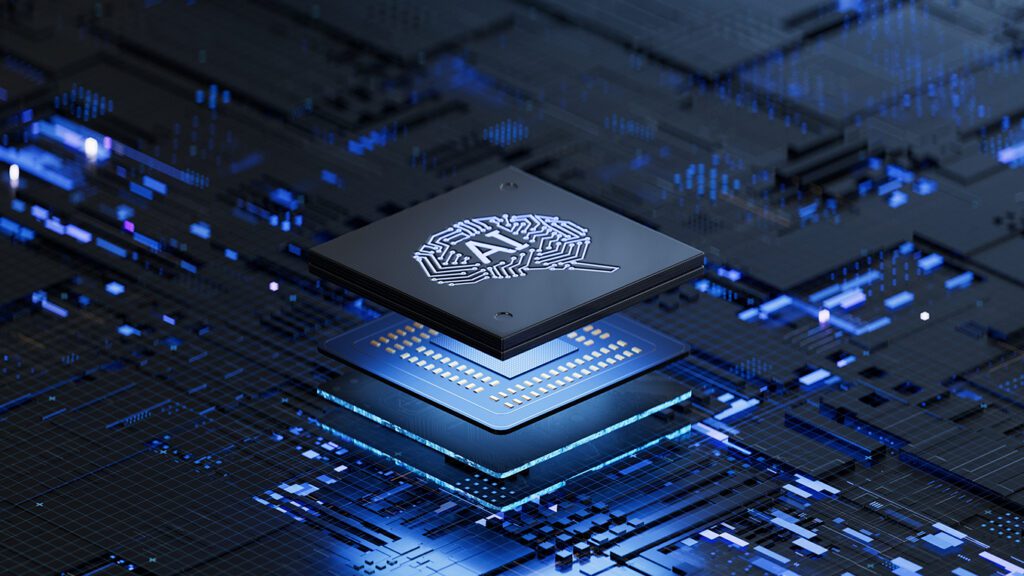Boosting Energy Efficiency in AI Hardware: A $16.3 Million Leap Forward
Date: September 26, 2024
Exciting news out of the California-Pacific-Northwest AI Hardware Hub (NW-AI-Hub)! The Department of Defense is injecting a substantial $16.3 million into three groundbreaking projects aimed at enhancing the energy efficiency of artificial intelligence hardware. This funding is part of a broader initiative to strengthen the nation’s semiconductor manufacturing capabilities and reduce our reliance on foreign technology.
Co-led by Stanford University and UC Berkeley, the NW-AI-Hub is one of eight hubs established in 2023 through the Microelectronics Commons program under the CHIPS and Science Act. This initiative has a crucial goal: to foster innovation in microelectronics and provide the U.S. with a competitive edge in semiconductor production.
H.-S. Philip Wong, chair of the hub’s executive committee and a professor at Stanford, emphasizes the significance of energy efficiency in AI hardware. “The energy consumption of AI is a key bottleneck for its ubiquitous deployment in society,” he shared. Wong also expressed pride that the California and Pacific Northwest region is instrumental in advancing AI technologies vital for national security and economic growth.
The $16.3 million funding is part of a larger announcement from the Department of Defense, which unveiled $269 million in project awards under the Microelectronics Commons program.
Tsu-Jae King Liu, dean of UC Berkeley’s College of Engineering, highlighted how this investment ensures continued innovation in AI. “Our hub is a collaborative effort that involves numerous academic institutions, National Labs, and industry partners,” Liu noted. “Together, we’re tackling every aspect of semiconductor development, from materials and device design to packaging and prototypes.”
The Innovative Projects Receiving Funding
Three fascinating projects have been selected for this funding, each promising to push the boundaries of AI hardware:
-
CMOS+X: Integrated Ferroelectric Technologies for Ultra-Efficient AI Hardware
- Lead by: Sayeef Salahuddin, UC Berkeley
- Focus: This project seeks to leverage the unique properties of ferroelectric materials to significantly improve energy efficiency in future AI hardware. By reducing the power supply voltage and developing non-volatile memory integrated directly with microprocessors, this initiative could revolutionize how we power AI systems.
-
Energy-Efficient and Scalable AI Hardware Systems through Heterogeneous Integration of Specialized Chiplets
- Lead by: Subhasish Mitra, Stanford
- Focus: Here, researchers aim to improve energy consumption and performance by utilizing advanced semiconductor materials and integration technologies, along with innovative AI system designs. This project addresses the dual challenge of energy efficiency and computational performance, vital for the future of AI hardware.
- Energy-Efficient and Scalable Self-Learning AI Hardware with 3D Electronic-Photonic-Integrated Circuits
- Lead by: S.J. Ben Yoo, UC Davis
- Focus: This project aims to develop commercially viable optoelectronic AI computing prototypes that tackle large-scale AI challenges. By melding photonics and electronics into a compact 3D circuit module, the team hopes to create a new era in AI computing.
These three projects are backed by a network of over 20 partners, including key players from academia, industry, and government labs, all working together to push the envelope of what’s possible in AI technology.
Conclusion
The advancements emerging from the NW-AI-Hub are set to transform the landscape of artificial intelligence, making it not only smarter but also more energy-efficient. This funding is more than just dollars and cents—it represents a significant step toward sustainable technology that can enhance our daily lives and bolster our nation’s economic future.
The AI Buzz Hub team is excited to see where these breakthroughs take us. Want to stay in the loop on all things AI? Subscribe to our newsletter or share this article with your fellow enthusiasts.




